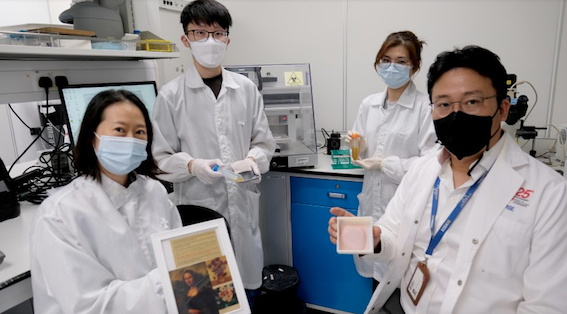Singapore turns pollen into 3D printing ink for biomedical applications
26 August 2021 | News
A sustainable alternative material to current bioprinting inks

image credit- NTU Singapore
Scientists at Nanyang Technological University, Singapore (NTU Singapore) have found a way to use sunflower pollen to develop a 3D printing ink material that could be used to fabricate parts useful for tissue engineering, toxicity testing and drug delivery.
This pollen-derived ink is able to hold its shape when deposited onto a surface, making it a viable alternative to current inks used for 3D printing in the biomedical field.
To illustrate the functionality of their pollen-based 3D printing ink, the NTU Singapore scientists printed a biological tissue ‘scaffold’ that in lab studies was shown to be suitable for cell adhesion and growth, which are essential for tissue regeneration.
This novel use for pollen, described in a scientific paper that will be the cover feature of scientific journal Advanced Functional Materials, highlights its potential as a sustainable alternative material to current bioprinting inks, said the research team.
The study’s co-lead author Professor Cho Nam-Joon of the NTU School of Materials Sciences and Engineering said: “Bioprinting can be challenging because the material of the inks used is typically too soft, which means the structure of the envisioned product may collapse during printing. Through tuning the mechanical properties of sunflower pollen, we developed a pollen-based hybrid ink that can be used to print structures with good structural integrity."
The team is now looking to collaborate with industry to refine their 3D printing innovation and advance its commercial uptake.












